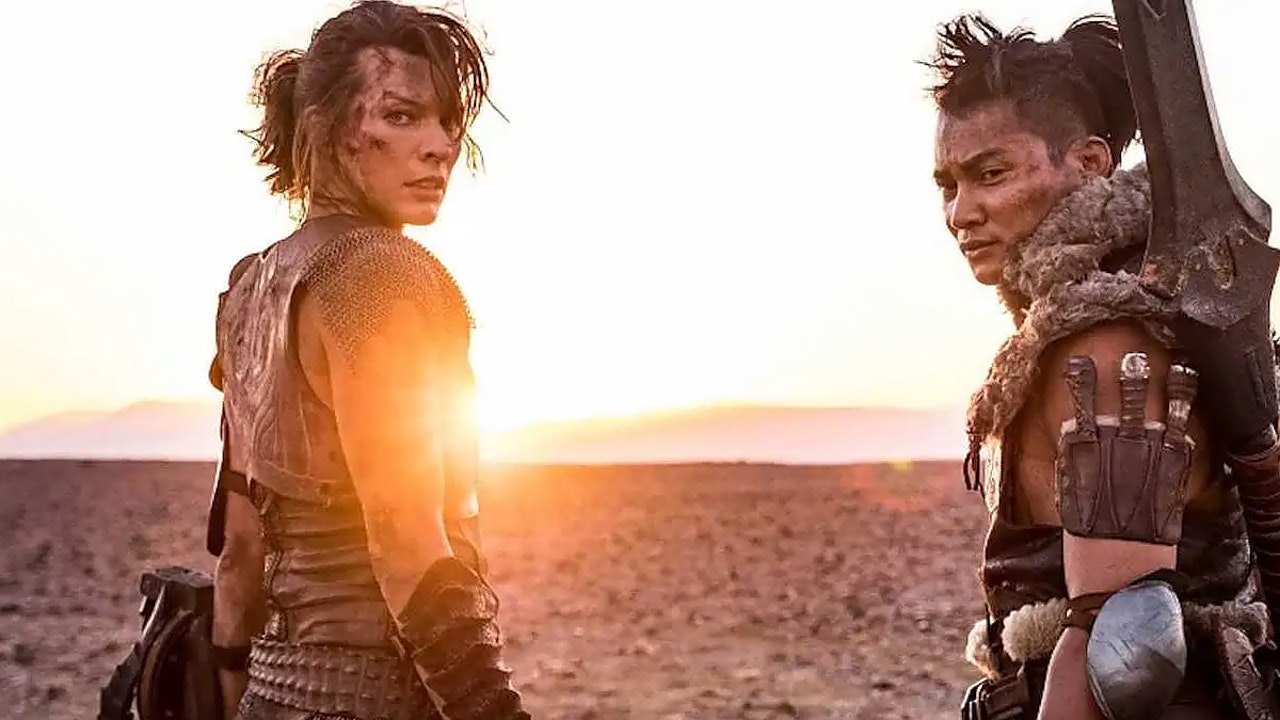Three years after the self-proclaimed final chapter in their long-running Resident Evil saga, B-movie power couple Paul W.S. Anderson and Milla Jovovich are back to the lucrative well of Capcom video game adaptations for Monster Hunter, another hyperkinetic CGI spectacular from the director who inspired the term “vulgar auteurism.” Those who celebrate the contrived nonsense of Anderson’s original screenplays as postmodern anti-art manifestos will be over the moon at this one: We begin with a platoon of all-American UN troops (the film is financed by, among others, China’s Tencent Pictures) led by one scrappy badass babe (Jovovich) scouring the wide-open desert of… somewhere, in search of the ominously disappeared Bravo Team. (Bravo Team, as any movie & game junkie knows, rarely fares well.)
Suddenly, in a twist reminiscent of Captain N: The Game Master but with far more instances of gruesome death (Anderson really pushes the PG-13 rating to its stomach-churning limits), Jovovich and her unit are transported via magic electrical storm to a completely different barren desert: one inside the fantastical world of Monster Hunter, where Dune-like sandships sail the drifts, primeval killer monsters make mincemeat of unwary travelers, and Ron Perlman wears anime hair that must be seen to be believed. (Also, there are anthropomorphic bipedal cats.) Trapped alone in this hostile landscape, Jovovich’s ranger must team up with a similarly stranded native, a nameless and strangely adversarial longbow-wielding hunter (Tony Jaa) who doesn’t speak a lick of English, to fight their way to freedom and unravel the mystery of the portal. And––spoiler alert––if you think that mystery will be adequately unraveled by the film’s ending, you don’t know Paul W.S. Anderson.
Yes, it’s a mighty strange premise for an adaptation of a distinctly Japanese video game better known for its romantic East-meets-West high fantasy aesthetic, complicated and challenging play mechanics, and human-to-human cooperative experience than realistic military hardware or cinematic storytelling. (Contra Resident Evil, which was conceived from its earliest stages as an interactive love letter to George Romero and Hollywood B-horror.) To his credit, once the story gets rolling, Anderson exhibits real imagination in translating not just the environments and battles but the full abstracted emotional arc of the Monster Hunter gameplay loop to a medium of purely visual storytelling.
Much of the film is near-wordless as the only two human characters (Jovovich and Jaa) lack a common language or even culture, but their transition from adversaries to co-op partners mirrors the arc of the game’s core mechanics, as experienced by the player: at first we are menaced by a variety of oversized, seemingly invulnerable beasts that can eat our heroes for lunch. Then, teaming up with another player, we salvage weapons and equipment which make our characters better prepared to fight back. We learn a boss monster’s weak point, and slay lower-level monsters to harvest raw materials and strategically enhance our loadout. Then, in a climactic feat of teamwork, skill and skin-of-our-teeth daring, we join forces to take down the beast that once towered over us like a god––and by the time it falls, we’ve upgraded our relationship from strangers in a desert (or on a wi-fi network) to battle-hardened comrades. On to the next level!
High drama it ain’t, but Anderson’s clear affection for the soul of the material somewhat outshines his subpar wordsmithing and avatar-thin characters. So does his giddy, well-practiced visual acumen. While Monster Hunter’s imagery is not as gonzo in either its scope or its relentless roadkill-flat digital elegance as Anderson’s later 3D-shot RE films––trading globetrotting post-zombocalypse urban futurist environs for largely a single barren (if beautiful) desert populated by giant CGI denizens––his roving camera is always restless yet rarely incoherent. Action sequences are choreographed and edited with a degree of tight conceptual and spatial coherency that puts nearly any Marvel movie to shame, whether close-quarters scuffles or epic woman-on-kaiju confrontations.
For all his love of garish computer creations, Anderson never stops finding new mythically stylized camera angles and dazzling music-video cuts from which to explore the ever photogenic Jovovich––though never by crassly ogling her. I won’t dare to speculate about whether Anderson’s work deserves the label of “feminist,” but the man really digs his wife. He was doing female-led actioners years before Mad Max: Fury Road, to which this desert slamfest is (perhaps unfairly) likeliest to be compared.
Monster Hunter is now in theatrical release.

